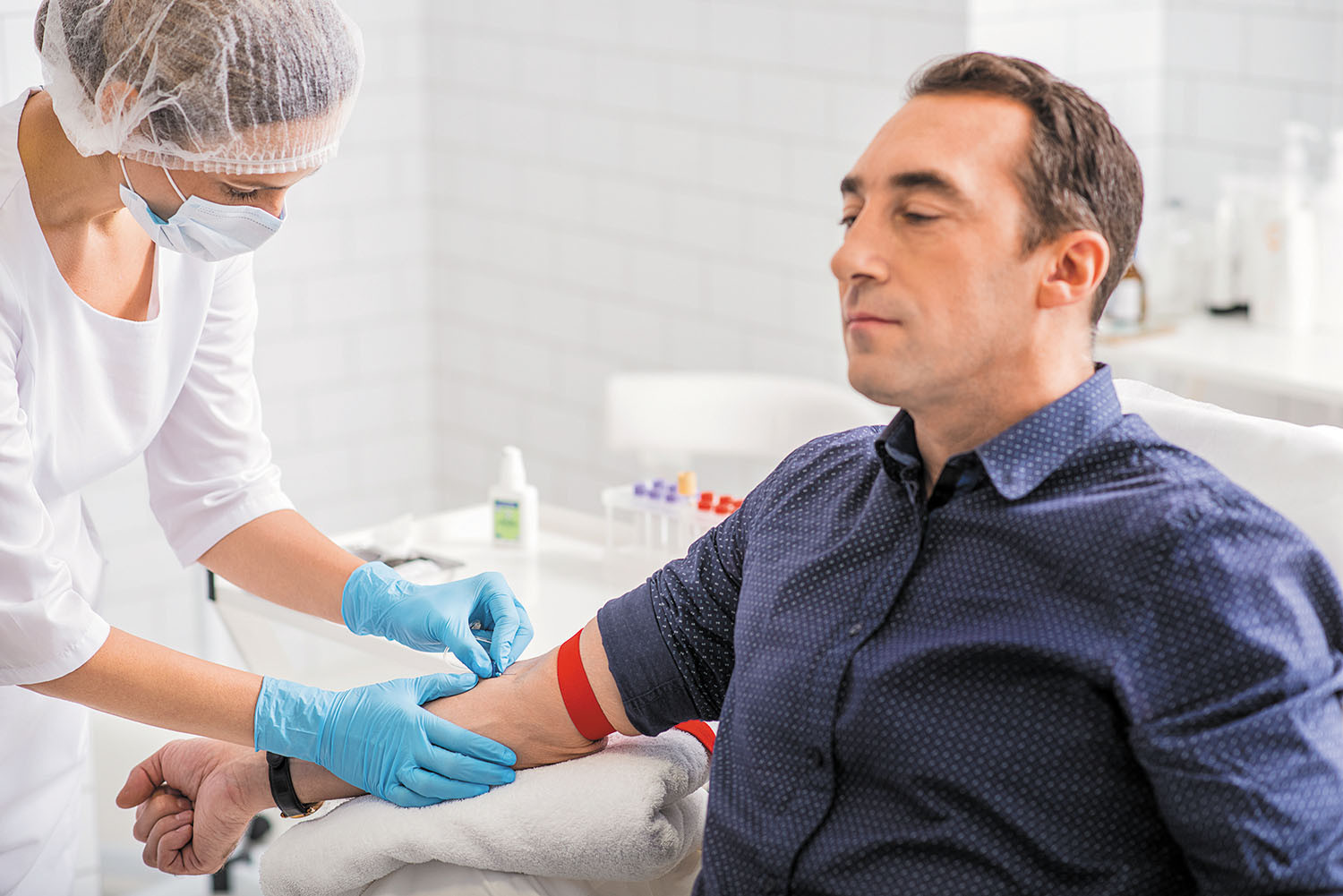Recent Articles

Gratitude enhances health, brings happiness — and may even lengthen lives

Skin care for aging skin: Minimizing age spots, wrinkles, and undereye bags

Medicare versus Medicaid: Key differences

Lost a tooth? What to know about dental implants

Hyperbaric oxygen therapy: Evidence-based uses and unproven claims

Gatorade. Liquid IV. Do you need extra electrolytes?

Sexual violence can cast a long shadow on health

Prostate cancer: Short-course radiation as effective as longer-term treatments

Eggs, protein, and cholesterol: How to make eggs part of a heart-healthy diet

Can a quick snooze help with energy and focus? The science behind power naps
Medical Tests & Procedures Archive
Articles
Tips to cope with medical test anxiety
Some people have anxiety about getting medical tests such as blood work, CT scans, or MRIs. When debating whether to skip a medical test due to fear, a person should get as much information as possible about the test or ask for medication to reduce pain or anxiety associated with the test. During a medical test, it may help to do relaxation exercises or focus on something fun planned for later in the day.
Take arms against perplexing pain
Pain in the shoulder, elbow, or wrist without obvious injury is common. Possible causes include arthritis, bursitis, frozen shoulder, rotator cuff tear, tendinitis, or nerve compression in the carpal tunnel or the cubital tunnel. Home remedies include rest, ice, compression, or elevation; over-the-counter anti-inflammatory pain relievers; and devices such as a splint or brace. Other treatments include physical therapy or steroid injections. Surgery is usually a last resort.
Should I get genetic testing for breast cancer?
Women should consider genetic testing for breast cancer if they have a personal or family history of breast or ovarian cancer, especially diagnosed at age 50 or younger; family history of BRCA1 or BRCA2 gene mutations; or Ashkenazi Jewish heritage.
Do you pass the hearing test?
Approximately one in three people ages 65 to 74 has hearing loss, and nearly half of those older than 75 have difficulty hearing. Getting a hearing test is recommended to identify any hearing loss before it worsens and prescribe a hearing aid if needed. While hearing aids are traditionally expensive, new over-the-counter devices can make them more affordable for people with mild or moderate hearing loss.
Do I still need a colonoscopy?
A 2022 study led to questions regarding whether colonoscopy is the best strategy to reduce the risk of death from colon cancer. But overwhelming evidence supports the procedure for lowering the risk of colon cancer and related death, and experts continue to recommend people at average risk get at least one colonoscopy beginning at age 45.
The latest on lipoprotein(a), an inherited cause of early heart disease
About 20% of people have high blood levels of lipoprotein(a)—Lp(a) for short—a fatty particle that's like the evil twin of the more familiar LDL ("bad") cholesterol. Elevated Lp(a) which can double or triple risk of a heart attack and raise stroke risk, and is linked to problems with the heart's aortic valve. With new treatments that can lower Lp(a) on the horizon, cardiologists are now testing more people for this biomarker, which is not included in standard cholesterol tests.
A lethal cancer's long reach
While ovarian cancer is not always inherited, family history is the top risk factor for the disease, which is diagnosed in 20,000 American women and kills 13,000 annually. Symptoms, such as bloating, pelvic pain, bowel or bladder habit changes, and unusual vaginal discharge or bleeding, are often vague and subtle until the disease is advanced, making it hard to detect and cure. No standard screening test is available for ovarian cancer. Women with symptoms can ask for a pelvic ultrasound. Women with a family history should seek genetic counseling and testing.
Novel procedure may lower stubbornly high blood pressure
Renal denervation is a minimally invasive procedure that destroys some of the nerves inside the renal arteries, which supply the kidneys. The procedure lowers blood pressure by disrupting communication between the brain and the kidneys that leads to elevated blood pressure. People with stubbornly high blood pressure may be candidates for the procedure, which is currently approved for use in Europe but not in the United States.
Chest pain from inflamed joints
Costochondritis, which is caused by inflammation of the cartilage between the ribs and the breastbone, causes chest pain that's often mistaken for a heart problem.
Checking for heart murmurs
A heart murmur is the sound of turbulent blood flow within the heart as heard through a stethoscope. In adults, most abnormal murmurs are caused by an aortic or mitral valve that's not working correctly.
Recent Articles

Gratitude enhances health, brings happiness — and may even lengthen lives

Skin care for aging skin: Minimizing age spots, wrinkles, and undereye bags

Medicare versus Medicaid: Key differences

Lost a tooth? What to know about dental implants

Hyperbaric oxygen therapy: Evidence-based uses and unproven claims

Gatorade. Liquid IV. Do you need extra electrolytes?

Sexual violence can cast a long shadow on health

Prostate cancer: Short-course radiation as effective as longer-term treatments

Eggs, protein, and cholesterol: How to make eggs part of a heart-healthy diet

Can a quick snooze help with energy and focus? The science behind power naps
Free Healthbeat Signup
Get the latest in health news delivered to your inbox!
Sign Up











